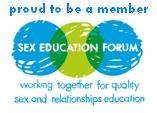
Strengthening Relationships
and Sex Education
info@rsehub.org.uk


Top Tips on how to advocate for RSE in your setting
- Include children and young people in the discussion and remember that you are advocating, primarily, for them and not for RSE itself. Ask people in your setting to consider what they want for the future for young people you work with as they move into their early adulthood – their relationships, their self-confidence, their parenting ability etc -. This can focus the mind well on what is required in their learning now. Once we leave full-time schooling, no-one is formally helping us with this vital aspect of our human education.
- Discuss RSE in the context of broader PSHE work. Make clear the links between relationship health, sexual health, substance use, mental health and physical well-being and press for their integration in teaching and learning. They are not usually separate in young people’s lives, and should not be seen as separate issues in learning.
- Focus first on the ‘R’ of RSE if faced with objections, especially when working with younger children. The core skills around communication, negotiation, making and keeping friendships, building self-confidence, managing conflict, e-safety, body awareness etc, are the essential bedrock on which to build age appropriate learning. Keep the ‘S’ very firmly on the agenda too though – timely understanding of the physical and emotional changes of puberty, for instance, is crucial.
- Practice your line of reasoning and rehearse confident evidence-based responses to the commonly voiced objections. Anticipate resistance and still seek out common ground with those who are not comfortable with RSE. In the main, the core of arguments on both sides of the debate about the necessity of school-based RSE are rooted in perceptions of ‘what is best for children and young people’. Move forward from that common ground.
- Liken RSE to learning a new language and draw parallels with what helps and what is required in language learning. i.e frequent practice to embed learning, aiming for fluency, start early, start with simple concepts and build up to more complex ideas and skills, repetition, encouragement to use new skills in real-life settings, using a range of teaching methods and resources. RSE is not ‘the talk’ but a thousand conversations.
- Research all children’s services plans and priorities pertinent to your area. Pick out and collate any references to the need to address under-18 conceptions, STI rates, domestic abuse, parenting support, sexual crime and exploitation of children. Good RSE is an essential component of local area strategies to tackle these important health and safeguarding issues. Sometimes, the key to encouraging people to take notice is to talk about links to child protection.
- Advocate for an integrated whole school/organisation approach to RSE. It is not just about the content of timetabled lessons and schemes of work, but includes all aspects of pastoral support, inclusive and relevant policies, management of related incidents and child protection practice, strategies to engage with parents, staff training and supervision. It is crucial that the senior management team gives robust leadership for this approach.
- Linked to the whole school approach, share evidence for links with attendance and attainment in school. This can be a dangerous spiral. Children and young people with poor attendance or educated through an alternative curriculum are more likely to miss out on RSE, yet are the very young people often most in need of support around these aspects of life. Comprehensive RSE / PSHE and associated pastoral support can make a significant positive impact on attendance and attainment by recognising and managing common reasons for non-attendance like bullying, mental health concerns and family problems .
- Seek out like-minded colleagues in your local area and support each other. Use web-based networks and forums like Linked In groups; join this RSE Hub, the Sex Education Forum or the PSHE Association and share evidence of good practice, training and mentoring opportunities.
- Reassure colleagues that they don’t have to be good at or even able to do all the RSE teaching, but they do all play a part in making R&S learning successful for children and young people of all ages by participating in some aspect of the whole organisation approach. Look after yourself and your colleagues.
Latest news from the hub
-
> RSE Hub Briefing for councilors
We are pleased to announce a that the RSE Hub Briefing for councilors published in 2013 but has been refreshed to reflect the most recent data,
Read More -
> FPA Sexual Health Week – free resources available
FPA’s Sexual Health Week is running from 11 to 18 September 2017 and this year’s theme is Talking About Pornography. They ran a survey earlier
Read More -
> Watch Screwball! The Hilarious New SRE Film from TrueTube
TrueTube’s film Screwball! launched earlier this week and it’s got everyone very excited! It's a comedy drama for RSE lessons about Ryan and Na
Read More -
> How relationships and sex education can contribute towards healthy sexual development: research into practice.
9.30am–4.30pm Friday 30 June 2017 University of Westminster, 309 Regent Street, London W1B 2HW Tickets: £65 full price; £35 students Tick
Read More -
> Justine Greening announces statutory RSE in all schools - including academies!
It’s time to celebrate!In case you haven't seen, Justine Greening, Secretary of State for Education, has just announced proposed legislation fo
Read More



